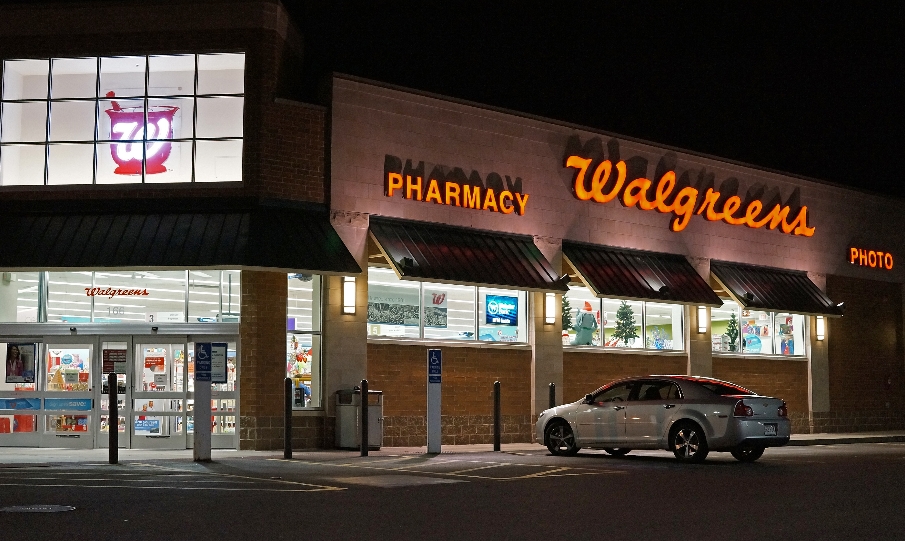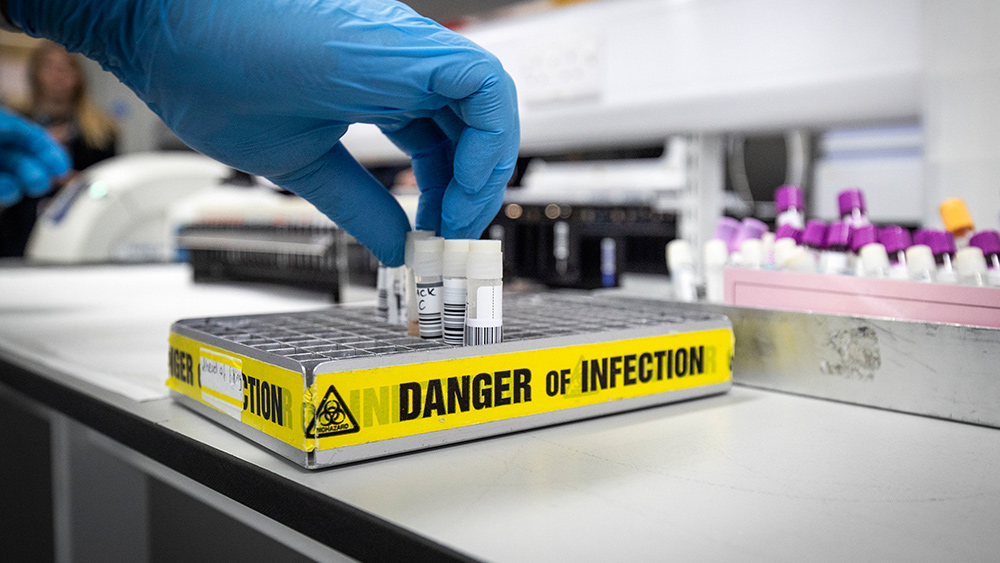
The end of the Wuhan coronavirus (COVID-19) pandemic seems to have heralded the "retail apocalypse," especially for Walgreens as the pharmaceutical chain announced plans to close at least 150 stores.
This announcement comes after Walgreens slashed its earnings forecast due to declining demand for COVID-19 tests and vaccines.
Data shows that Walgreens shares plummeted to $28.64 per share on Tuesday, June 27, the chain's lowest level in over 11 years, prompting severe cost-cutting measures from worried executives.
Walgreens recently confirmed that the closures would take place by the end of August 2024. As of midday Thursday, June 29, the chain's shares were sitting at $28.59, down 30 percent from last year.
The pharmaceutical chain reported that it was hard hit by the end of the pandemic, which saw a significant decrease in the demand for its COVID-19 vaccines and testing facilities. The company also suggested that consumers were becoming more inflation-weary and less likely to spend.
Walgreens CEO Rosalind Brewer told investors that the chain has been observing "changing market trends that have consumers prioritizing value in response to a more uncertain and challenging economic environment."
Walgreens reported a significant 59 percent profits decline to $118 million in the fiscal third quarter, which ended May 31. This means that the chain is now increasing its cost-management target from $3.5 billion to $4.1 billion. (Related: Walmart cuts another 2,000 warehouse jobs following retail store closure announcement.)
The announcement of store closures prompted a domino effect, with the shares of its rivals CVS Health and Rite Aid also declining. On June 29, CVS Health shares dropped 26.8 percent to $68.34 per share, and Rite Aid stocks dropped by 78 percent to $1.54.
Jeff Jonas, an investment expert who manages the Gabelli Funds portfolio, said that because of the end of the COVID-19 pandemic, very few customers "are getting either rapid tests or the actual PCR nasal swab tests." This may have something to do with the decline in CVS and Rite Aid shares.
"As we move forward on our strategy to expand Walgreens' role as a leader in the delivery of local healthcare, we're focused on creating the right network of stores in the right locations to best meet the needs of the communities we serve," said a Walgreens spokesman.
Walgreens took into account several factors, such as the dynamics of the local market and the changing buying habits of customers, added the spokesman.
Aside from the closure of 150 Walgreens stores in the U.S., the chain also announced that it will axe 300 stores operated by its sister brand Boots in the United Kingdom.
Retail apocalypse heralds the closure of stores from different brands
The closures are occurring during a widespread "retail apocalypse" which has seen dozens of brands shutter their bricks-and-mortar locations that are struggling to keep up with online competitors.
Earlier in 2023, Bed, Bath and Beyond was forced to file for Chapter 11 bankruptcy, leading to the closure of 360 stores and the gutting of 20,000 jobs.
Bed, Bath and Beyond was once worth more than $17 billion. In June, the chain was snapped up for $21.5 million at auction, but its physical stores will still close.
For years, Bed, Bath and Beyond had healthy annual profits. However, other retailers like Amazon started gaining on the chain until other stores started chipping away at the retailer’s market share and its profits began to decline.
Retail chain Party City also filed for Chapter 11 bankruptcy protection in January. As a result, dozens of stores across the country have already closed for good.
Additionally, retailer David's Bridal, which once claimed to dress one in every four brides in the U.S., also filed for Chapter 11 bankruptcy this year.
Read more articles about the state of the U.S. economy at Collapse.news.
Watch the video below to learn more about the retail apocalypse in the country.
This video is from the Rudyk Report channel on Brighteon.com.
More related stories:
Grocery stores hiring armed security teams to ward off rising thefts.
Shipping rates drop 75% amid plummeting US retail demand.
Sources include:
Please contact us for more information.



















